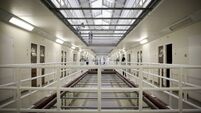ESRI: 'Groundhog day' should Omicron flare and derail exceptional recovery

Ireland’s leading economics think tank details “a very robust” recovery in the domestic economy, citing the much better than anticipated fall in Covid-driven unemployment, higher than expected levels of household spending, and the healthy state of the public finances despite the scale of the economic crisis over the last 21 months.











